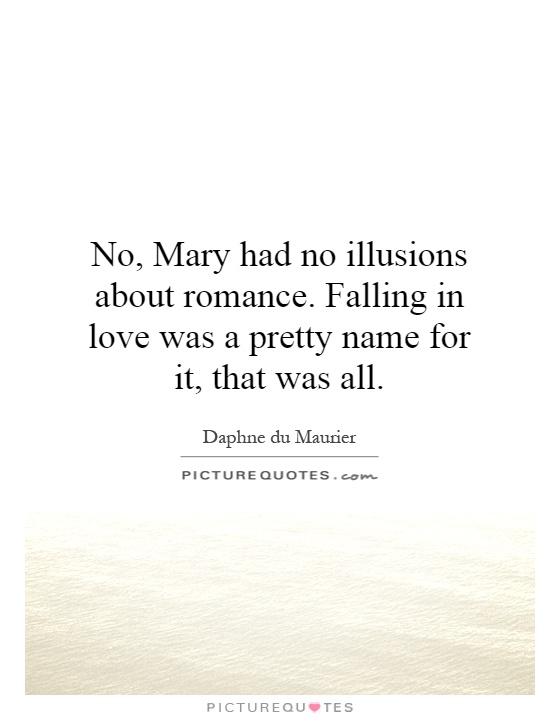No, Mary had no illusions about romance. Falling in love was a pretty name for it, that was all

No, Mary had no illusions about romance. Falling in love was a pretty name for it, that was all
Daphne du Maurier, the renowned author of classic novels such as Rebecca and Jamaica Inn, was known for her complex and often dark portrayals of love and relationships. In many of her works, including the aforementioned novels, du Maurier delved into the complexities of human emotions and the often destructive nature of romantic entanglements.The quote “No, Mary had no illusions about romance. Falling in love was a pretty name for it, that was all” encapsulates du Maurier’s cynical view of love and romance. In many of her stories, love is portrayed as a force that can lead to obsession, jealousy, and ultimately tragedy. Du Maurier’s characters often find themselves entangled in relationships that are fraught with tension and conflict, leading to devastating consequences.
In Rebecca, the protagonist finds herself caught in a web of deceit and manipulation as she becomes entangled in a love triangle with her husband and his deceased first wife. The novel explores themes of jealousy, insecurity, and the destructive power of love, ultimately culminating in a shocking revelation that changes the course of the protagonist’s life forever.
Similarly, in Jamaica Inn, du Maurier explores the darker side of love through the character of Mary Yellan, who becomes embroiled in a dangerous relationship with her abusive uncle. The novel delves into themes of power dynamics, control, and the ways in which love can be used as a weapon to manipulate and harm others.
Du Maurier’s portrayal of love as a dangerous and destructive force reflects her own experiences and observations of human relationships. Throughout her life, du Maurier struggled with her own romantic entanglements and often found herself disillusioned with the idea of love. This cynicism is reflected in her writing, where love is often portrayed as a force that can lead to betrayal, heartbreak, and ultimately, tragedy.












 Friendship Quotes
Friendship Quotes Love Quotes
Love Quotes Life Quotes
Life Quotes Funny Quotes
Funny Quotes Motivational Quotes
Motivational Quotes Inspirational Quotes
Inspirational Quotes